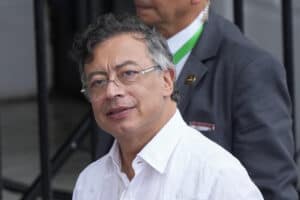The days of false prophets scamming believers out of their tithes could be a thing of the past

The days of false prophets scamming believers out of their tithes could be a thing of the past as religious leaders from various religions unite to pave the way forward in dealing with the rotten apples in the community basket.
Community leaders from various religions and churches met the Commission for the Promotion and Protection of the Rights of Cultural, Religious and Linguistic Communities (CRL) this week to discuss concerns and discrimination each religion faces.
What are religious community rights?
Reverend Dr Mlamuli Delani K Mthembu said although the constitution and legislation spoke about religious community rights, they did not define what a religious community was and what religious community rights were.
Mthembu said this placed the responsibility on the CRL to pave its way and define its criteria and process in a manner that was constitutional and could pass the scrutiny of the interested religious communities in the country and parliament.
“The challenges faced by CRL since its inception demonstrate societal breakdown on ethics, principles and behaviours to be aligned to the constitution. “They are also considering the weaknesses of ethical, principled and servant leadership,” he said.
ALSO READ: Church members arrested after allegedly being found naked with 11 children
Mthembu said the CRL planned to improve its presence at provincial, district and community levels through established committees and partnerships with sector-organised civil society structures to address culture, religion, and linguistic challenges.
CRL chair Professor David Mosoma said a religious community was a moral agent that provided a moral compass for society. “The community must lead with a social coalition, nation-building, peacemaking, friendship and tolerance.
“There was a general feeling that faith united the communities, who were led by leaders who had distinctive qualities that set them apart from the rest,” he said. Mosoma said these qualities include goodness, kindness, humanness and compassion.
Role of the religious community
“When you look at these elements and a community does not live up to these elements, members of the community can say ‘this is not the community it is supposed to be’.
We want to ensure their religious leaders reflects this understanding of community. “At the end of the day, commercialisation of the religions, abuse of the belief systems, people eating whatever and fed whatever, exploitation of that, gender-based violence, abuse, all of that tarnished the image of the community,” he said.
Mosoma said the community must take control of itself by defining itself. University of Limpopo victimologist Professor Jaco Barkhuizen said the constitution guaranteed the right to religion, which also meant the right from religion.
“The constitution also has a limit to all rights. “If a religious community’s practices are harmful or detrimental that right immediately stops. “Their right stops where the parishioners begins,” he said.
Barkhuizen said because of South Africa’s problematic socioeconomic situation, there were unscrupulous people using religion or religious tenets to form cults where they exploited people who joined the religious movement to enrich themselves.
“We’ve seen it before, Jim Jones, Charles Manson, the Krugersdorp murders and [Shepherd] Bushiri. And we will see it more,” he added.
Barkhuizen said the longer the country’s socioeconomic situation remained bad or worsened, it could expect more charlatans to exploit religion for a quick buck. Barkhuizen said some of these false prophets promised to attendees anything from eternal life and heaven to economic freedom.
“Some of them indoctrinate their victims to a point where they will do anything for a religious leader,” Barkhuizen said.
Support Local Journalism
Add The Citizen as a Preferred Source on Google and follow us on Google News to see more of our trusted reporting in Google News and Top Stories.






